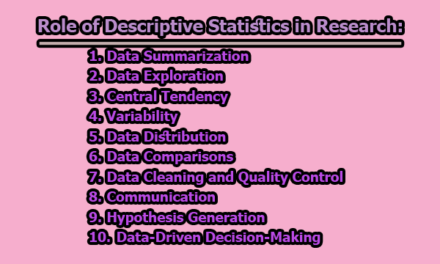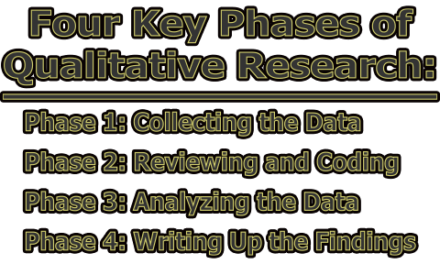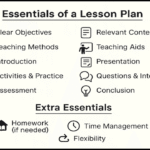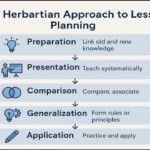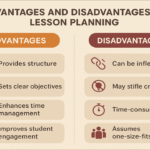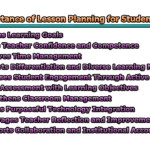How to Publish a Research Paper in Reputed Journals?
When you are going to publish your research paper in reputed journals obviously need to follow some strategies like you will make a plan for submission your own article then you select a specific topic to do research which includes a clear statement of the problem and proposed solution and results, description of what has been done before and what is new, description of the results in sufficient detail, identification of the major aspects and significance of the research, description of what improvements they might suggest and the impacts they might have, an abstract with all necessary information presented briefly but comprehensively. In the rest of the article, we are going to present to you “How to publish a research paper in reputed journals?”
Successful Publication Requires:
When you want to publish successfully, there are three things that you need to have which are;
- Knowledge: You need to have some knowledge of how the publication process works and how to write the article.
- Attitude: Secondly, it’s also important, you have the motivation-the desire to publish, you want to be able to publish your paper in an international journal.
- Skills: Lastly, you need the skills. Skills interns of language proficiency, academic writing skills.
Approach to Publish:
Publishing basically depends on the answer to the following questions;
i. Why Publish?
Why do you need to publish basically there are two factors; one would be external requirements and the other one is internal motivations as to why you need to publish, let us a little bit elaborate;
- External Requirements:
- Relies on publishing are a core role in academia if you are involved anywhere in the university of higher education, somewhere to promoting knowledge.
- In many institutions, universities, colleges, they required to publish, in some places, if you want to be promoted then you need to have some publications.
- Some institutions, universities, colleges also provide you incentives or rewards if you publish, you get so much of financial incentives or you get some other form of rewards.
- You may also get from your encouragement to publish at international journals.
- It is important for your career progression.
So, these are the external requirements.
- Internal Motivations: You may also have some internal motivations such as;
- Prestige
- Reputation for you and your institution/university/library
- Encouragement from peers/collaborations
- Share your work, keep others learn and
- Some of you have personal reasons, you may want to publish because it’s an internal desire that you have, you want to do well in attain that.
- Research has less value unless it is published: most of us have been involved where research and somehow another if you look at the research cycle until you publish the research results other people can’t make use of it. So, research is cycling process which includes; identify the research area, design the research study, carry out research, analysis the data would you have to publish because then only other people can make use of it or you can make use of it to further progress the body of knowledge.
ii. What can You Publish?
There are several things which you can publish:
- Theses/dissertation’s
- Books
- Book chapters
- Journal publications
- Research articles
- Systematic reviews
- Opinion articles
- Letter to the editor
- Conference papers
- Newsletter
- Bulletins
- Literacy articles
- Other magazine articles
- Newspaper articles
- Web publishing
- Websites
- Blogs
- Social publishing
But in this article, we would like to focus on the journal publications and especially on the research articles.
iii. When do you publish?
You start from the very beginning. So, if you are a student you can publish, many students, especially at the postgraduate level, will be doing a thesis and, in the process, you will be doing literature reviews, well that can be the basis of one publication and then as you entire your career whether as a librarian or whether as a lecturer or whether as something else throughout your career, you have lots of opportunities to publish and even if you go retire you don’t stop publishing, you may not publish as much but you still can publish in different ways.
iv. Who does publish with?
You can publish alone but also possible to publish with others for those who are doing the research of the university, you can publish with your supervisor, if you already working then you can publish with your collogues or with or with your peers and they may the same institution or maybe other institutions within the country or even international. There nothing to stop you from international collaboration or you may be from one country and your co-researcher or co-authors from another country, and you can have a paper that is been publishing in there. So, there are several opportunities for you to publish.
v. Where do you publish?
You may focus on the following journals;
- Scholarly journals:
- Index journals
- Peer-reviewed journals
- International journals
- Local journals
- Open access journals:
- Gold route
- Green route
- Hybrid
- But one category of journals which we hope that you will avoid what we refer to as the predatory journals, this one publishes your paper very quickly, sometimes within a week but the quality control of it is not there and usually, you have to pay some of the money in order to get your paper to publish insight there.
- Publishing in reputable journals: what would we hope to publish in reputable journals and what are reputable journals? Basically, criteria like;
- Well known publisher
- Journals are peer-reviewed
- Editorial board, with (some) familiar members
- Indexed
- Consistency in publication.
Some of the reputable journals are IFLA, Emerald, LIBRI, etc.
vi. How do You Publish?
As you do a research, you write a paper, what happens if your paper goes to the peer review process, where the editor of the journals sent to one, two or three peoples who are knowledgeable that area and they will comment on it and perhaps make a condition on how to improve the paper or they will say, we are sorry can’t accept your publication. So, what we would hope that your paper goes through the peer review process and eventually it will be published so that other people can discover the paper and it will be disseminated for others to do the research and make use of your research findings is that; if you want to publish research then you will follow the procedures;
One of the things is important the scholarly publishing process is the understanding the flow of it in there, starts with the idea for research, doing the research, designing the research, conducting the research, and so on before you start writing the paper. So, why we put it on the left-hand side? The idea for research, the review of the literature, design, and conducting the research is that you can be having wonderful paper but if your research is poorly done or you not done much of literature review however good your paper is, it would not be accepted by the journals. So, what are the things that you need to keep in mind that if you want to publish, you need to have good research which means that kind of research you do the topic of research that you do is important? Once you have good research done then you write to paper and then the other important thing is that targeting the right journal. There are literally hundreds of journals are available in the world and you can submit one of them but if your paper or your article does not match what the journal requires then it will be rejected. So, it is important for you to target the journals carefully, write the paper according to the journal requirement before you submit and then once you submit a paper the editor receives the paper, send to the reviewers, reviewers comment and then the editor give it back to you in many cases, you will be asked to revise the paper, in very rare cases they accept the draft of the paper where many cases you will be asked the revise. If you revise then re-submit the paper then you have a good chance the paper being accepted in there.
Key Steps in Publishing: So, what you need to do interns in publishing your paper?
- Plan your paper:
- In order to publish in scholarly journals:
-
-
- Your research much have some value.
- It must be important to someone (or some group) outside your own locality/country.
- It must be on a topic of current interest.
-
-
- You must be able to describe your work clearly:
-
-
- What is the problem you are trying to address?
- What is/are the objective(s) of your research?
- How did you conduct the research?
-
- Identify target journal(s):
- Find out who publishes research like yours.
- Search databases for journals where research like yours been published.
- From the list of possible journals, narrow down to a few target journals.
- Examine the characteristics of each journal; get as much information as you can.
- Selecting the right journal can significantly increase.
- From the list of target journals, need to prioritize.
- Many factors to consider:
-
-
- Reputation
- Likelihood of acceptance
- Urgency
- Impact
-
-
- Only you can decide on that.
- Choose 2-3 journals and prioritize which one you want to submit.
- Writing the article: your article must fit the requirements and priorities of the target journal. You need to shape your article to the requirements of the journals. You don’t simply write and then send it to the journals. Study the requirements of the journal first before you submit the article. As you write an article you have your own style to write but follow the following steps;
- Develop an outline based on the ‘style’ of the journal.
- Write the article based on your outline.
- Write in good English.
- Write a formal language.
- Make your article as concise as possible.
- Use figures and tables judiciously.
- One of the things that you keep in mind is to avoid plagiarism, do not just copy and paste from other articles without proper citation because international journals will put your article through the review process and they want to see whether you have been taken it from others or not.
- Authorship:
- First author: the person who conducts the research, data collection, analysis, and interpretation of the results, and puts together the paper of submission.
- Co-author(s): make intellectual contributions to the data analysis and contributes to data interpretations, reviews each draft of the paper co-author must be able to defend the paper.
- Avoid gift authors/honorary authors.
- Submitting the articles: before you submit, check the following things;
- Your work contributes to the advancement of knowledge.
- Your work is of interest to the journal’s audience.
- Your manuscript is structured properly.
- You formatted your figures and tables appropriately.
- Your conclusions are justified by your results.
- Your references are appropriate and accessible.
- All citations are listed in the reference and vice-versa.
- You corrected all grammatical and spelling mistakes.
- Read the guidelines for the author carefully; ensure you have followed them as best you can.
- Avoid multiple submissions of the same work, do not submit your manuscript to more than one journal at the same time.
- The paper should be returned to you 1-3 months (maybe more in rare cases), with the decision:
-
-
- Accept without any changes which is quite rare.
- Minor revisions, where the small, small changes in your article.
- Major revisions make the changes and re-submit.
- Rejected is rare cases, if you rejected one journal then you make some changes and try to submit another journal.
-
- Dealing with Reviewers Comments:
- Read and understand the reviewer’s comments carefully.
- Respond directly to the comments.
- You may challenge the reviewers but with good justification.
- Revise and re-submit (if allowed), do not give up.
- Submit on time.
- If your article is rejected:
- Don’t give up.
- Read the reviews carefully; consider the reasons they provided.
- Revise the article and resubmit elsewhere.
Finally, we can say that writing a journal article can be challenging but is also rewarding. Use the knowledge gained to plan and write your article. Get help where needed. Start, persevere, and don’t give up.
Practical Tips: you may follow;
- Set objectives for the day/week/month
- No. of words, no. of hours, selection to complete.
- Work in a place/time that is best for you.
- Work individually or in a group whatever works best for you.
- There will be problems, don’t let them distract you.
- Give yourself a reward for each major milestone.

Assistant Teacher at Zinzira Pir Mohammad Pilot School and College





